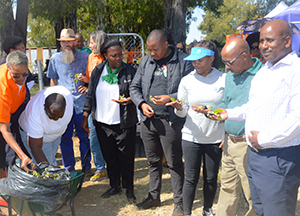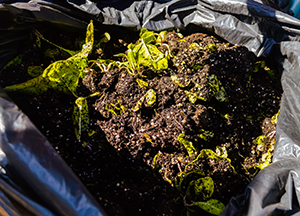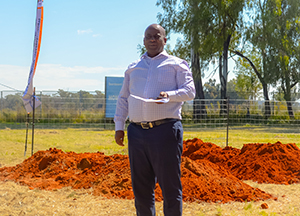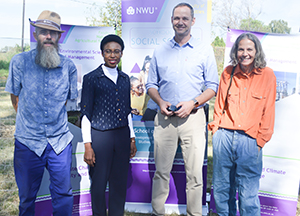In an era where food insecurity is a pressing concern, community gardens offer a practical solution by increasing access to fresh, nutritious food. These gardens empower individuals and communities to take control of their food production, reducing dependence on expensive and often unhealthy store-bought alternatives.
All this is captured in the 2023 Nelson Mandela Day theme, which centres on food and nutrition and urges everyone to “Do what you can, with what you have, where you are”.
Planting some early seeds, the South African Local Government Association (SALGA) has been collaborating with various stakeholders on a backyard garden project at a primary school in Potchefstroom.
On 14 April 2023, SALGA launched the project at Bert’s Bricks Primary School. Together with the learners, representatives of the North-West University’s (NWU’s) Unit for Environmental Sciences and Management, a team from the subject group Social Anthropology, Assupol, Sanlam and the North West Department of Agriculture, Land Reform and Rural Development and the North West Department of Education, they planted fruit and vegetable seeds and indigenous trees. Topics such as food security, climate change, and the importance of backyard gardens were also discussed.
“Imagine one family having to serve 10 people, and these bunches of spinach that will be grown here will be shared with that family so that, at the end of the day, every family member goes to bed with food in their stomach,” said Desiree Tlhoaele from SALGA.
Dr André Goodrich from the NWU’s subject group Social Anthropology emphasised the importance of a project-based curriculum. “With a garden such as this, there is almost nothing one can’t teach through it because in the soil you find South Africa’s history, biology, and chemistry. Integrating the garden and the produce into the social systems will provide more knowledge and skills and benefit the school.”
Prof Nomali Ngobese from the NWU’s School of Geo and Spatial Sciences addressed learners and spoke about the benefits of compost and urged them to partake in gardening activities.
“Starting a school vegetable garden is a fantastic way of teaching learners how to produce their own food while imparting basic skills in agriculture. The learners get to develop their sense of responsibility from taking care of plants and monitoring them until maturity, which are invaluable life skills,” said Prof Ngobese.
Lehlohonolo Mofokeng, principal of Bert’s Bricks Primary School, thanked everyone for their involvement in establishing the garden, which would provide an excellent opportunity for learners to engage in experiential, hands-on learning. He extended a special word of thanks to Pia Bombardella from the Social Anthropology subject group for her involvement and dedication.
The atmosphere buzzed with excitement when the formalities concluded and some of the learners started planting the provided seedlings.

Lehlohonolo Mofokeng, principal of Bert’s Bricks Primary School, along with all the other role players before getting their hands dirty for a good cause.

The seedlings that were planted on the day.

Lehlohonolo Mofokeng, principal of Bert’s Bricks Primary School, thanks all the role players.

Dr André Goodrich, Prof Nomali Ngobese, Prof Roelof Burger, and Pia Bombardella enjoying the event.
